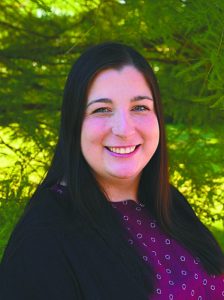June 1, 2025
Ask the Audiologist
 By Shelby Garrison, Au.D.
By Shelby Garrison, Au.D.
Audiology Consultants, P.C.
Are there lifestyle changes that can help my hearing?
Hearing loss is often viewed as something that can only be managed with technology, such as hearing aids or cochlear implants. While these tools are vital, lifestyle also plays a significant role in maintaining and supporting healthy hearing. As an audiologist, I often talk with patients about small daily habits that can make a real difference in their hearing health, both now and in the future.
Here are several lifestyle changes that can help support your hearing and overall ear health.
1. Protect Your Ears from Loud Noise
Noise-induced hearing loss is one of the most preventable forms of hearing loss:
- Use hearing protection (earplugs or earmuffs) when exposed to loud environments such as concerts, sporting events, construction sites, or when mowing the lawn. If you are in loud environments with any
frequency, consider investing in a set of custom hearing protection. - Keep headphone/earbud volumes at safe levels. If someone else can hear your music from your earbuds, it’s too loud. Most cell phones have settings to limit the maximum output from phone speaker(s) and/or Bluetooth headphones.
- Follow the 60/60 rule: Listen at no more than 60% of the maximum volume for no more than 60 minutes at a time.
2. Quit Smoking (or Avoid Secondhand Smoke)
Smoking has been linked to an increased risk of hearing loss:
- Nicotine and carbon monoxide can reduce blood flow to the inner ear.
- The toxins from smoking may damage the delicate hair cells in your cochlea that help you hear.
- Even secondhand smoke exposure, especially in children, can contribute to long-term hearing damage.
3. Maintain a Heart-Healthy Diet
Good circulation is essential for healthy hearing:
- A diet rich in vegetables, fruits, whole grains, and lean protein supports blood flow to the ears.
- Nutrients such as folic acid, omega-3 fatty acids, magnesium, zinc, and potassium have been linked to better hearing outcomes.
- Reduce sodium and processed foods, which can contribute to high blood pressure, another factor that affects hearing health.
4. Get Regular Physical Activity
Physical activity benefits your hearing in several ways:
- It improves circulation, helping to nourish the auditory system.
- Exercise also supports cardiovascular health, which is directly linked to ear health.
- Even walking 30 minutes a day can contribute to long-term hearing preservation.
5. Manage Stress and Mental Health
Chronic stress and anxiety can impact how well you process sound:
- Stress can affect blood flow and increase inflammation in the body, potentially harming the auditory system.
- It can also worsen conditions like tinnitus (ringing in the ears).
- Practices like yoga, meditation, deep breathing, or counseling may support both your mental well-being and hearing clarity.
6. Prioritize Sleep
Sleep is when your body repairs and restores itself, including your hearing system:
- Aim for 7–9 hours of quality sleep per night.
- Poor sleep has been linked to an increased risk of auditory processing difficulties, especially in noisy environments.
7. Get Regular Hearing Check-Ups
Even if you aren’t experiencing hearing loss yet, regular screenings can help:
- Early detection allows for early intervention and better outcomes.
- Monitoring your hearing annually is especially important if you’re over age 60 or work in noisy environments.
8. Limit Ototoxic Medications (When Possible)
Some medications can damage the inner ear:
- These include certain antibiotics, chemotherapy agents, and high doses of aspirin or diuretics.
- If you’re on long-term medication, ask your physician whether it has any ototoxic (hearing-damaging) risks.
- Never stop a prescribed medication without your doctor’s approval.
Take Charge of Your Hearing Health
While hearing loss isn’t always preventable, many cases are influenced by lifestyle. Taking small steps today can protect your hearing for years to come. If you have concerns about your hearing or want a baseline test, talk to your audiologist. We’re here to help you protect and preserve one of your most vital senses.
Shelby Garrison is an audiologist at Audiology Consultants, P.C. For more information, visit audiologyconsultants.com. Stores are located in Davenport, IA, Muscatine, IA, Moline, IL, and Geneseo, IL.
Filed Under: Community, Family, Health & Wellness, News
Trackback URL: https://www.50pluslife.com/2025/06/01/ask-the-audiologist-153/trackback/


